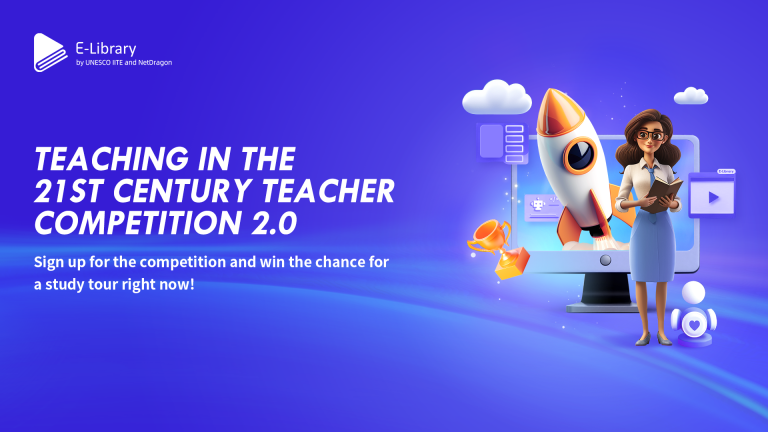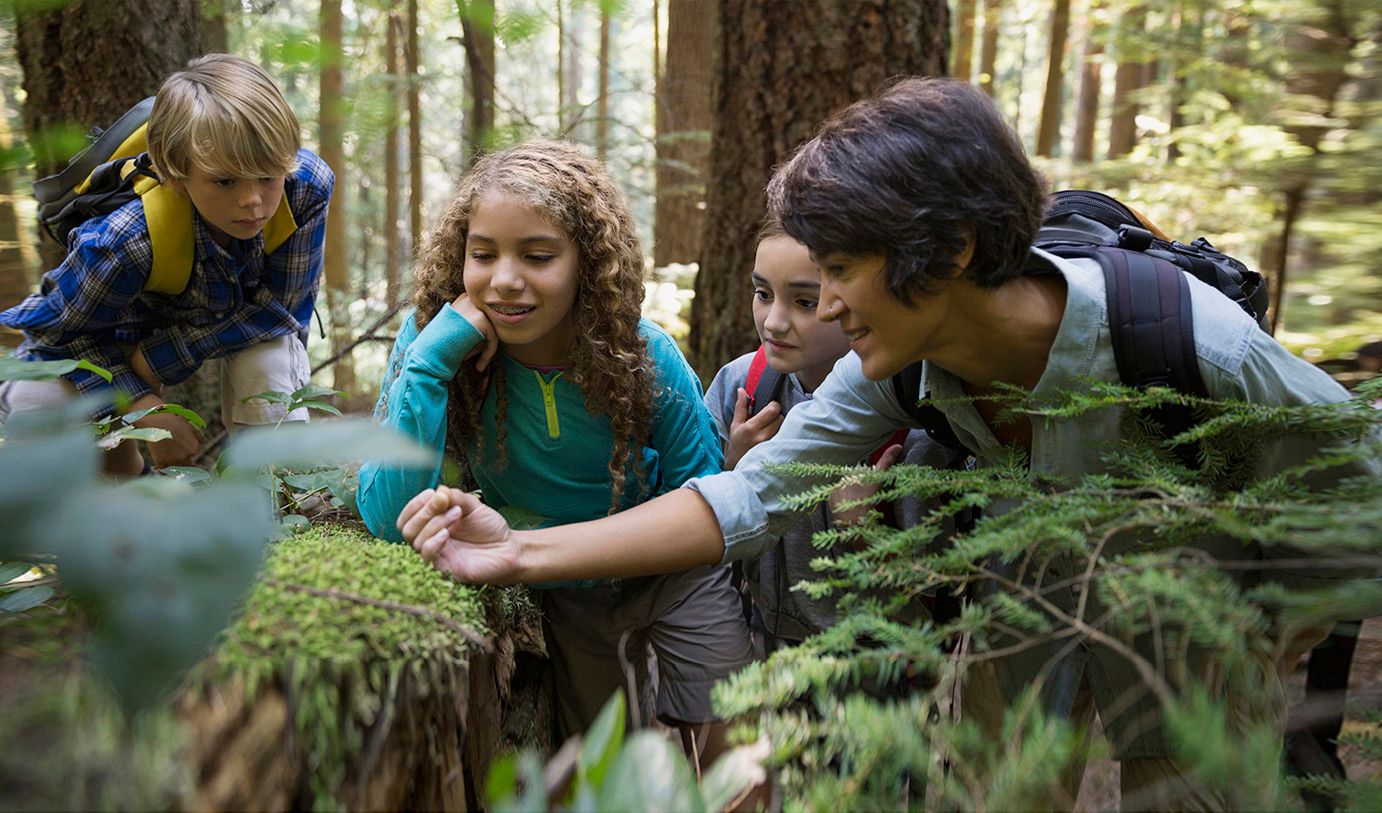It's important to balance dress code professionalism with comfort and practicality, ensuring that teachers can perform their duties effectively while maintaining a professional appearance that aligns with cultural and institutional expectations.
Best posts made by Shazia Baloch
-
Do your teachers follow a specific dress code at your school?posted in Teaching in the 21st Century Teacher competition 2.0
-
Give your opinion about this forum and about new categoriesposted in Our forum community
What do you think about elibrary? Have you ever used such a forum before? Or participated in such a competition? What have you learned from it? Share some insights. I am getting many new ideas from teachers in other countries. It is a very useful forum.
-
What is Educational Models?posted in Inclusive teaching
Educational models are frameworks or approaches used to organize and deliver teaching and learning. They provide a structure for how education is designed, implemented, and evaluated. Here are some key educational models:
Traditional Model: Focuses on direct instruction from teachers, with a set curriculum and standardized testing.
Montessori Model: Emphasizes student choice, hands-on learning, and mixed-age classrooms. It supports self-directed activity and individualized learning.
Reggio Emilia Approach: Centers on student-led inquiry and exploration, with an emphasis on creativity, collaboration, and documentation of learning processes.
Project-Based Learning (PBL): Involves students working on real-world problems or projects, integrating knowledge across different subjects and developing skills like critical thinking and collaboration.
Inquiry-Based Learning: Encourages students to ask questions, conduct investigations, and discover answers through exploration and research.
Blended Learning: Combines traditional face-to-face instruction with online learning components, offering a mix of in-person and digital experiences.
Flipped Classroom: Students learn new content at home through videos or readings and engage in hands-on activities and discussions during class time.
STEAM Education: Integrates Science, Technology, Engineering, Arts, and Mathematics to foster interdisciplinary learning and problem-solving skills.
These models vary in their approach to teaching, learning, and assessment, and schools may adopt one or a combination of these models based on their goals and context.
-
What about your project?posted in Teaching in the 21st Century Teacher competition 2.0
Will you share if you have participated in teaching competition, which category have you selected, and have you ever participated in such a competition before? How are you feeling?

Are you excited to see the results? -
Do students learn more from multiple-choice tests or written tests?posted in Classroom management
What is your opinion? I’m curious about which method you believe is more effective in helping students understand and retain information. Does one approach offer better insights into their knowledge and thought processes, or do both have their own strengths depending on the context?
-
Concise overview of the 4 categoriesposted in Teaching in the 21st Century Teacher competition 2.0
-
ChatGPT in the Classroom: Enhances learning by facilitating interactive Q&A sessions, generating creative prompts for writing exercises, and fostering engaging discussions on various topics.
-
ICT Tools: Increase student engagement through interactive simulations, multimedia resources such as videos and interactive presentations, and platforms that allow for collaborative learning and real-time feedback.
-
Greening the Classroom: Involves adopting sustainable practices such as using energy-efficient lighting, recycling materials, incorporating indoor plants for better air quality, and educating students about environmental conservation.
-
Gamification: Utilizes game-like elements such as quizzes, challenges, and leaderboards to make learning enjoyable, motivating students to participate actively, and enhancing their retention of knowledge and skills.
-
-
RE: What about your project?posted in Teaching in the 21st Century Teacher competition 2.0
@Abdul_Rafay77 I also chose the theme ,, using ChatGPT and AI tools for enhancing learning. It's been an exciting experience.
Most of the teachers have chose this theme. -
Traditional vs Modern Teachingposted in Teaching in the 21st Century Teacher competition 2.0
Comparison:
- Traditional Teaching: Relies on lectures and textbooks, with a focus on rote memorization and individual assignments.
- Modern Teaching: Incorporates interactive methods like group work, digital tools, and project-based learning, emphasizing critical thinking and collaborative skills.
Key Difference: Modern teaching engages students through dynamic activities and technology, whereas traditional methods focus on passive learning through lectures and reading.
-
RE: Pre-screen Concludes for Teacher Competition: 46 Outstanding Entries Advance to Peer Evaluation"posted in Teaching in the 21st Century Teacher competition 2.0
@Fish-Fisher dear why only 46? This decision has disappointed many participants. Out of 235, 46 is very few. We've all been working on this for a month, eagerly waiting for the projects to be uploaded. All projects should have been uploaded, and then the quality could have been left to public voting. The projects of those most active on the E-library haven’t been uploaded. We are extremely disappointed. Everyone can’t win; winning or losing is a matter of luck.. Everyone should have been given a chance to advance to the next round.
-
Formal and Non-formal educationposted in Inclusive teaching
Formal education: involves structured, systematic learning typically conducted in educational institutions like schools, colleges, and universities. It follows a prescribed curriculum and adheres to standardized methods of assessment. Students receive formal qualifications, such as diplomas and degrees, upon successful completion of their studies.
Non-formal education: encompasses educational activities that occur outside the traditional school system. It includes community education, workshops, seminars, and online courses. This type of education is often more flexible and tailored to specific needs or interests, focusing on practical skills and knowledge rather than formal qualifications.
-
RE: Why a teacher should not use mobile phone in a class?posted in Classroom management
@RAHEELSAHITO if a word or topic is not understood or if a student asks a question that isn't related to the subject that is difficult to answer, teacher can use their mobile phones to look it up at that time. It’s better to clarify something right away rather than giving students incorrect information. The teacher can use their mobile phone to provide the correct answer. I believe using mobile phones for these purposes isn’t an issue. If students haven’t seen a picture of an organism, teacher can show it to them using a mobile phone if a projector isn’t available or the lab is closed. For a couple of minutes, using a mobile phone is acceptable, as long as it’s for class-related purposes and then put away. I don’t think there should be restrictions on this.
-
RE: What about your project?posted in Teaching in the 21st Century Teacher competition 2.0
@SHANZA-SHAH That's awesome dear! I'm glad we both find it interesting. . you're right, participating and learning are what really matter.. Best of luck dear


-
RE: Forest schoolsposted in Teaching green
In Finland, there's a trend of outdoor schools where classes are held in the forest rather than traditional classrooms. For instance, the "Forest School" approach emphasizes learning through nature, where students engage in activities like building shelters, foraging for food, and understanding ecosystems. These schools aim to develop practical skills, encourage a connection with nature, and promote physical activity and well-being. This model contrasts sharply with conventional education settings and offers a hands-on, immersive learning experience.

-
RE: What about your project?posted in Teaching in the 21st Century Teacher competition 2.0
@AbdulRehman5 It's fantastic bro that your passion is driving your learning... Every challenge is a chance to grow!!
-
RE: Ideas for greening the classroom with educational technologyposted in Teaching green
Here are additional fresh and easy-to-implement ideas for greening the classroom with educational technology:
-
Digital Water Usage Monitoring: Install apps or sensors to track classroom water consumption and encourage water-saving behaviors among students.
-
Online Eco-Friendly Crafting: Integrate digital tools for creating eco-friendly crafts using recycled materials or digital art techniques.
-
Virtual Wildlife Observation: Use live streams or online platforms to observe and learn about local wildlife habitats and behaviors.
-
Remote Green Energy Challenges: Engage students in remote challenges to design and present innovative ideas for renewable energy solutions.
-
Digital Eco-Friendly Book Clubs: Organize digital book clubs focused on environmental literature, using e-books and online discussion platforms.
-
Online Sustainable Cooking Classes: Host virtual cooking classes that emphasize sustainable and healthy eating habits, using locally sourced ingredients.
-
Digital Ocean Conservation Projects: Collaborate on digital projects that raise awareness about marine conservation issues and solutions.
-
Virtual Renewable Energy Tours: Arrange virtual tours of renewable energy facilities or green buildings around the world, using VR or online videos.
-
Eco-Friendly Digital Design Challenges: Challenge students to create digital designs for eco-friendly products or packaging using graphic design tools.
-
Online Sustainable Tourism Initiatives: Research and develop online campaigns promoting sustainable tourism practices and destinations.
-
Digital Upcycling Projects: Encourage students to digitally design and showcase upcycled products or artwork using online platforms.
-
Virtual Green Marketplaces: Create virtual marketplaces where students can trade or sell eco-friendly products they've designed or produced.
-
Online Environmental Impact Games: Engage students in online games that simulate the impact of human activities on the environment and challenge them to find solutions.
-
Digital Clean Energy Debates: Host virtual debates or discussions on clean energy policies and technologies, using online collaboration tools.
-
Remote Eco-Friendly Innovation Workshops*: Facilitate virtual workshops where students brainstorm and prototype eco-friendly innovations using digital design and modeling tools.
-
Online Carbon Footprint Calculators: Integrate online tools or apps that help students calculate and reduce their carbon footprint, promoting personal sustainability efforts.
-
Digital Renewable Energy Research Projects: Guide students in conducting digital research projects on emerging renewable energy technologies and their benefits.
-
Virtual Wildlife Conservation Campaigns: Collaborate on digital campaigns to raise awareness and support for wildlife conservation efforts, using social media and online platforms.
-
Online Environmental Documentary Screenings: Organize virtual screenings and discussions of environmental documentaries to educate students about global sustainability issues.
-
Digital Green Entrepreneurship Challenges: Challenge students to develop digital business plans for eco-friendly startups or initiatives, promoting innovation and sustainability in business.
These ideas leverage the capabilities of educational technology to inspire environmental consciousness and empower students to make a positive impact on the planet.
-
-
Direct Instruction vs. Inquiry-Based Learningposted in Teaching in the 21st Century Teacher competition 2.0
Direct Instruction vs. Inquiry-Based Learning
Direct Instruction:* Teacher-centered approach where the instructor leads and delivers the content in a structured manner, focusing on explicit teaching and clear, step-by-step instructions.
Inquiry-Based Learning: Student-centered approach where learners explore concepts through questions, investigations, and hands-on activities, emphasizing critical thinking and self-discovery.
-
RE: Get to know your fellow Forum members and tell us a bit about yourself in this discussion!posted in Our forum community
@Ana_moderator
I am Shazia Baloch from Sujawal, a JEST teacher at Govt. Girls High School Sujawal. My favorite part of my job is teaching Biology, and In my spare time, I enjoy to make drawings. -
RE: Aging vs technology:posted in Teaching in the 21st Century Teacher competition 2.0
The older generation of teachers, who were educated decades ago, often face challenges when it comes to adapting to the new syllabus and modern teaching techniques. While some have successfully embraced these changes, others may struggle with the rapid pace of technological advancements and the shift in educational methodologies. In many schools, there is a mix of those who actively work to update their skills and others who may find it difficult to move away from traditional methods. This can create a gap in the teaching approach, particularly when it comes to integrating digital tools and interactive learning in the classroom.
Do the older teachers in your school face difficulties in adapting to the new syllabus and teaching techniques?
-
I'm interested in astronomy. What about youposted in Inclusive teaching
Subjects similar to astronomy...

-
Astrophysics: Focuses on the physics of celestial bodies, their properties, interactions, and the laws of the universe.
-
Cosmology: Explores the origins, evolution, and structure of the universe as a whole, including topics like the Big Bang theory, dark matter, and dark energy.
-
Planetary Science: Studies planets, moons, asteroids, comets, and other celestial bodies within our solar system and beyond, including their composition, geology, and potential for life.
-
Space Exploration: Covers the history, technology, and future of human and robotic exploration of space, including missions to other planets, moons, and deep space.
-
Astrobiology: Examines the potential for life beyond Earth, including the study of extremophiles, planetary habitability, and the search for extraterrestrial intelligence (SETI).
-
Galactic Astronomy: Focuses on the structure, dynamics, and evolution of galaxies, including their formation, interactions, and classification.
-
Observational Astronomy: Teaches observational techniques and methods used in astronomical research, including telescopes, imaging techniques, and data analysis.
-
Exoplanetary Science: Studies planets orbiting stars other than the Sun (exoplanets), including their detection methods, characteristics, and potential habitability.
-
Astrochemistry: Investigates the chemical processes and compositions of celestial objects, including stars, planets, and interstellar medium.
-
Gravitational Astronomy: Explores the study of gravitational waves and their sources, providing insights into phenomena such as black hole mergers and neutron star collisions.
These subjects delve into different aspects of the universe, offering students opportunities to explore fascinating realms of science and discovery.
-